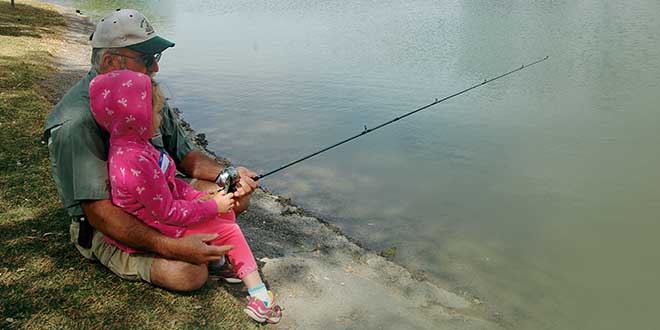Age of hunters and anglers indicates something is missing
People taking the time to read a magazine published by a state wildlife agency are likely interested in the outdoors.
Among those people are hunters, anglers and trappers. Perhaps some belong to a sportsmen or conservationist group that keeps a wary eye on political action that could impact their recreational opportunities.
Most take steps to prevent others from developing a poor view of outdoor pastimes, such as leaving areas better than found. They don’t need to be reminded to close gates or that pictures of any animal harvested should be respectful.
These outdoor enthusiasts take steps to make sure the privileges enjoyed today remain intact.
But a simple opportunity is missing to help ensure this heritage continues: Take a kid with you.
“A large part of conservation is paid for by hunters and anglers,” said Megan Otero, assistant hunter education coordinator for the New Mexico Department of Game and Fish.
“Those dedicated to supporting wildlife management through the purchase of a license and firearms, ammunition and archery equipment are getting older,” she continued. “A new generation of conservationists is vital to continuing science-based wildlife management.”
The time has come to develop a new generation of conservationists, individuals who believe in the North American Model of Wildlife Conservation and understand the physical and mental benefits of hunting, hiking and enjoying what New Mexico has to offer.
It doesn’t matter if you’re a parent, grandparent, aunt, uncle, guardian, family friend or neighbor. The next time you head outdoors, take a kid with you.
It might mean a little extra ammo spent at a range, or another lure lost in a tree, but for the youth, memories are made that last a lifetime and a future advocate may be born to protect cherished traditions. Children under 12 years old do not need a fishing license, so it’s easy to get a kid outdoors with no real extra cost.
If the outdoor activity involves a hunt, enroll the youth in a hunter education course, which is required for those under 18 to have access to full hunting privileges. There are also hunter education camps, which are free and held in different areas of the state on various weekends.
Participants in a hunter education camps complete curriculum geared toward producing safe, ethical hunters. They may also have a chance to try archery, .22 rifle, shotgun and sometimes fishing, depending on the features of the facility.
“By simply inviting the neighbor’s kid the next time you head to a city pond to cast a line or head into the field on a hunt, everyone will reap the benefits,” Otero said. “It’s an amazing experience to watch the face of a child, jaw on the ground, when they hear an elk bugle for the first time.”
Swapping stories at the campfire shouldn’t be allowed to become a footnote of outdoor history.
Share a lifetime of knowledge, passion and stewardship for the land and our wildlife with the next generation. Statistics indicate it’s sorely needed.
 New Mexico Wildlife magazine Conserving New Mexico's Wildlife for Future Generations
New Mexico Wildlife magazine Conserving New Mexico's Wildlife for Future Generations
